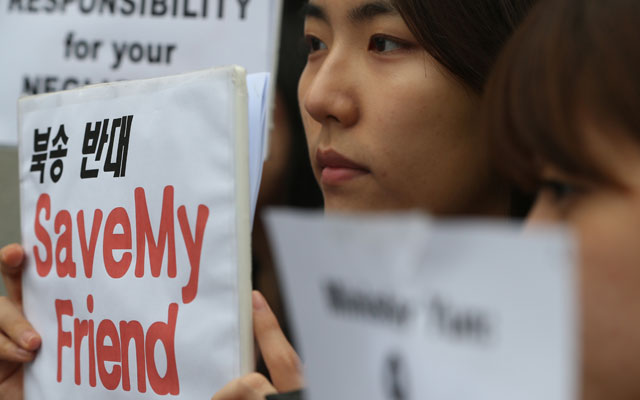North Korean Refugees Struggle to Reach Freedom
Bruce Klingner /
Nine North Korean refugees who had escaped from their homeland and made their way to Laos were forcibly repatriated on May 28. The defectors, ranging in age from 15 to 22, were turned over by Laotian authorities to North Korean security agents, who flew them via China back to North Korea.
The refugees likely face harsh imprisonment in political gulags, torture, or execution. North Korea deems escaping from the country to be a political “crime of treason against the nation.” Under North Korean law, the minimum punishment is five years of hard labor.
The U.S. State Department’s “Report on International Prison Conditions” concluded that North Korean political detainees are “routinely subjected to systematic physical and psychological mistreatment [including] severe beatings, electric shock [and] coercion of mothers to watch infanticide of their newborns.”
It is unusual for Laos to have turned over the refugees so quickly to North Korea, as it is that Pyongyang sent nine security agents to escort them back to North Korea. South Korean officials commented that Laos had previously allowed refugees expressing a desire to travel to South Korea to do so after a few weeks’ hiatus.
Laos’s acquiescence in this case awkwardly underscores the dictatorial nature of the regime at a time when the Obama Administration is actively courting it. American outreach and initiative on benefits like General System of Preferences ought to have a positive impact on humanitarian concerns. That the opposite seems to be happening makes one wonder how American interests in such concerns are perceived there.
North Korea may be seeking to disrupt the underground railroad by intimidating other defectors from attempting to escape. Tens of thousands of North Koreans are estimated to be hiding in northeast China, seeking to travel to South Korea via Mongolia or southeast Asian nations such as Thailand, Vietnam, and Laos. Up to 90 percent of North Korean refugees pass through Laos. The number of refugees reaching South Korea has declined due to stronger crackdowns by the Kim Jong-un regime.
Human rights activists argue that in allowing the transit of the North Koreans across China, Beijing “violates its commitments as a state party to the 1951 Convention relating to the Status of Refugees, its 1967 Protocol, and the 1984 Convention Against Torture and other Cruel, Inhuman, and Degrading Treatment.” However, China denied knowledge of the refugees’ plight since they had been given valid travel documents by North Korean embassy officials in Laos.
In the past, Beijing has been criticized by the international community for refusing to grant North Korean defectors refugee status, instead designating them as illegal economic migrants. Heartbreaking images of Chinese soldiers preventing North Korean refugees from reaching asylum in South Korean embassies in China roused international outrage. Although China often turns a blind eye to North Koreans hiding in its country, it invariably deports refugees when requested by Pyongyang. China also subsequently increases border security and cracks down on refugees after a high-profile incident.
During his upcoming summit with Chinese President Xi Jinping, President Obama should press Beijing to increase pressure on North Korea for its repeated violations of U.N. Security Council resolutions and international law. One tangible sign that China had altered its policy toward Pyongyang would be for Beijing to cease forcing refugees to return to the brutal living conditions and punishment imposed by the North Korean dictatorship.

